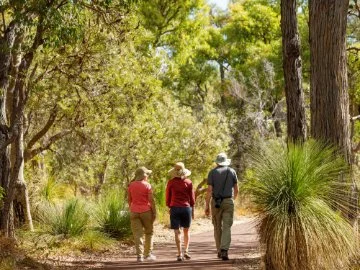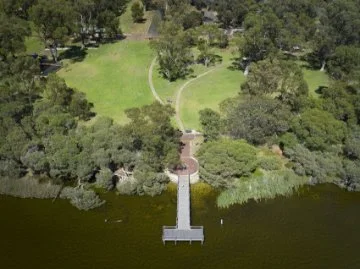The City of Joondalup encourages the community to participate in recreational activities while also appreciating our beautiful, unique and natural environment.
We are lucky to be the home of many parks and bushland areas where we can enjoy our parks and reserves while also being able to protect our natural areas for future generations to enjoy.
The City provides access to these areas by maintaining pathways in parks and bushland reserves to ensure our natural areas are protected but can still be enjoyed. These paths are lined with Zamia, Marri, Tuarts and many more wonderful native species that provide habitat for our extensive wildlife, and also allow us all to experience and connect to nature.

View our parks and bushland reserves
The City manages more than 300 parks and reserves, for residents, visitors, sporting clubs and community organisations to use and enjoy. Sports parks are used for a wide range of sporting codes and activities.

How to book parks and reserves
Parks can be booked for sporting fixtures, community events and casual use. Conditions apply and applications need to be made for hire.
Caring for parks, bushlands and reserves
Memorials in parks and open spaces
Memorials provide a place and opportunity for family and friends to remember, grieve, honour and celebrate a person who has passed.
While memorials are commonly located in designated memorial parks and cemeteries, memorials in public open spaces may be considered by the City.
How to apply
Application forms are required to be completed in order to manage the installation of memorials within public reserves in a way that maintains local amenity, ensures the safety of members of the community and minimises maintenance requirements.
There are two types of memorials in public open space which may be applied for:
- Temporary memorial: Considered for situations where a person has died in tragic circumstances. An approved temporary memorial may remain in place for up to 12 months.
- Permanent memorial: Considered in recognition of a person who has died and whose past actions have made a significant contribution to the City of Joondalup community.
Application forms are available below. Return the completed form via info@joondalup.wa.gov.au
For further information into the process, requirements and types of memorials and locations which may be considered, view the Memorials in Public Open Spaces Policy below.
